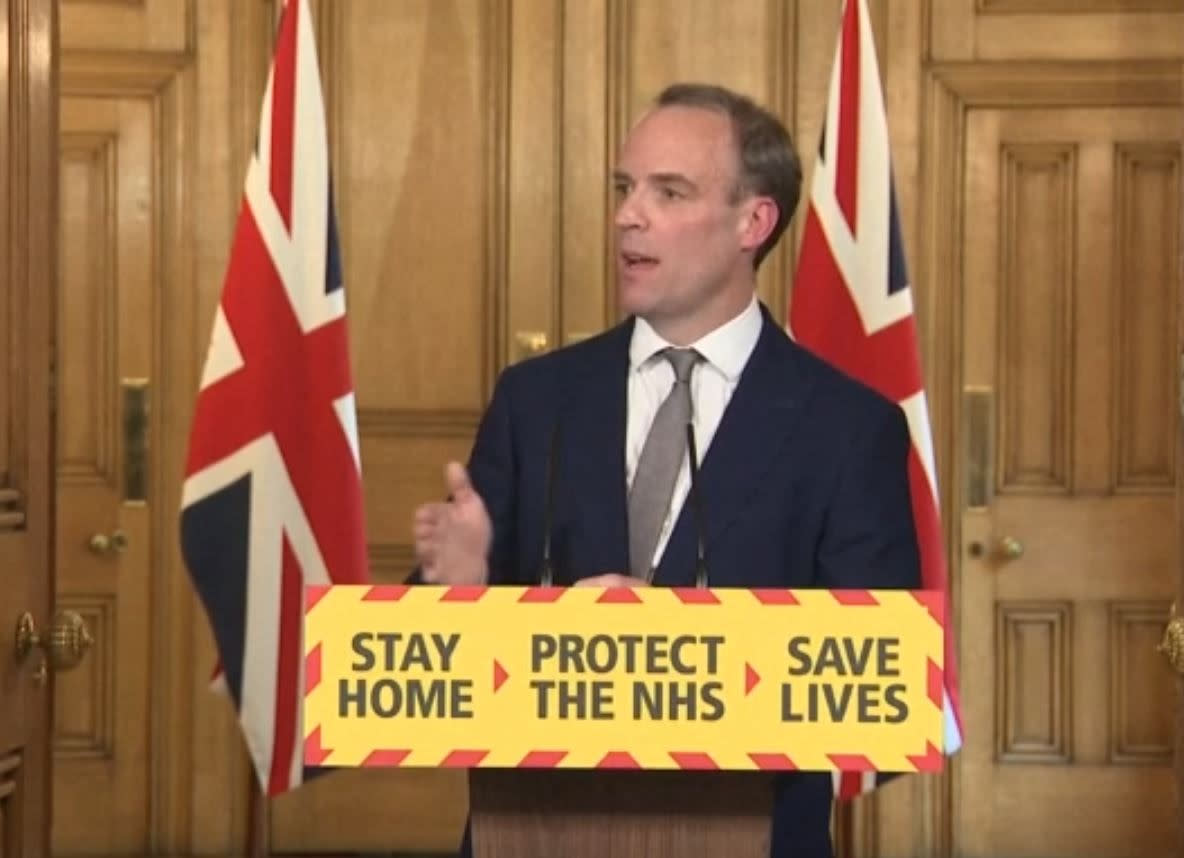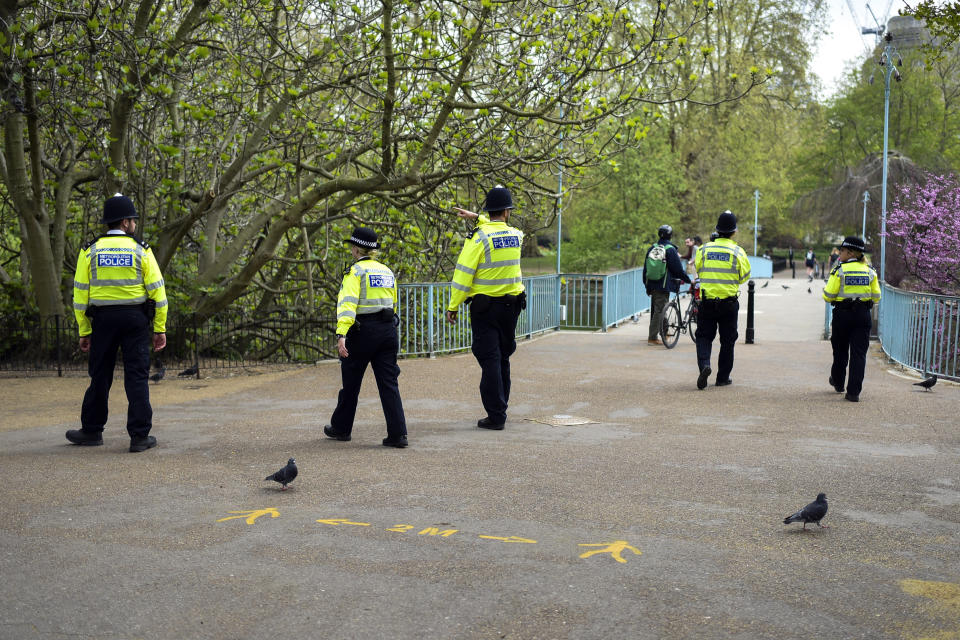Coronavirus: Consequences of lockdown 'rapidly accumulating', warns public health expert

A health expert has said the UK government's decision to extend coronavirus lockdown measures by at least three weeks is a "crushing disappointment" to many.
On Thursday, officials announced restrictions will be kept in place for “at least” another three weeks.
First secretary of state Dominic Raab said that social distancing restrictions would be extended as the infection rate had “not been brought down as far as it needs to be”.
Following a meeting with SAGE (Scientific Advisory Group for Emergencies), he said any relaxing of social distancing measures would threaten to bring a second peak of the outbreak to the country.

The announcement came after new coronavirus deaths rose by 861 in 24 hours on Thursday – bringing the death toll from 12,868 to 13,729, according to the Department of Health (DoH).
However, one public health expert said the affects of the lockdown would have wider negative effects on society beyond the threat of coronavirus infection.
Professor Linda Bauld, chair of public health at the University of Edinburgh, said: “The extension of lockdown was expected but this news will come as a crushing disappointment to many.
Latest coronavirus news, updates and advice
Live: Follow all the latest updates from the UK and around the world
Fact-checker: The number of COVID-19 cases in your local area
6 charts and maps that explain how coronavirus is spreading
“Everyone recognises that the absolute priority is to prevent the spread of COVID-19 and protect the NHS.”
But Bauld said the wider consequences of lockdown “are rapidly accumulating” - with not all deaths “COVID related”
“In the past week we have seen data from several parts of the UK that shows a rise in all-cause mortality and not all of these deaths are COVID-related,” she continued.
“There are more seriously ill people dying at home, more calls to 999, and accident and emergency hospital admissions have fallen. Recent surveys show worrying increases in anxiety and depression.
“Incidents of domestic violence - some of them fatal - have grown. Alcohol and drug services cannot support their clients in the usual way, and although we don’t yet know if directly alcohol and drug attributable will rise, this is a real possibility.”

However, other scientific experts agreed with the government’s decision to keep lockdown measures in place.
Dr Simon Clarke, an associate professor of cellular microbiology at the University of Reading, said: “Taking the foot off the brake too early will only give the virus an opportunity to begin to spread again, at pace.
“Decisions taken by other countries will help inform policy makers in deciding how to lift control measures, but we will also need to see testing conducted much more intensively than it is now, to gain a more accurate picture of how the virus is moving within the population."
Backing up Dr Clarke’s comments, Professor Gary McLean from London Metropolitan University said the government’s decision to extend measures made “complete sense”.
He said: “They are quite rightly making sure that this outbreak does not expand further by releasing the control measures too soon, considering that the government were so slow in the initial phases of the pandemic to introduce lockdown this shows that they are listening and learning.
“To relieve the lockdowns there must be overwhelming evidence of reduced virus transmission in the community. They claim the R value is likely to be below 1 in the community but I would like to see how they have calculated this.

“The UK control measures should also reflect what has happened in other countries and learn from them. Wuhan, China had lockdown for 11 weeks and had far fewer cases than the UK at the time of lockdown. “
There is strong public support for a lockdown extension, according to a YouGov survey released today.
It shows 67% of people strongly backed extending it, with 24% “somewhat” supporting it. Just 5% opposed it while 4% said they didn’t know.
Coronavirus: what happened today
Click here to sign up to the latest news, advice and information with our daily Catch-up newsletter

 Yahoo News
Yahoo News 

